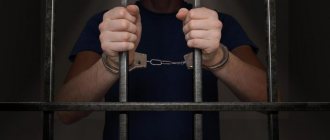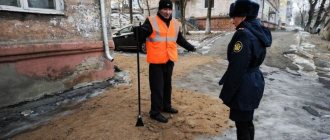Unfortunately, quite often not only adults, but also children fall into the path of crime. The influence of bad companies, lack of upbringing on the part of parents, and a great desire to become adults take their toll. Sometimes you are amazed at the cruelty with which the younger generation commits crimes. Many teenagers believe that because of their age, punishment will not follow, and they are deeply mistaken. To correct such juvenile criminals, there are special institutions - colonies for minors. How they differ from prisons, what are the conditions of detention and educational measures in colonies, we will try to understand in our article.
What is a colony
This is the same correctional institution, only intended for serving sentences for juvenile offenders. Colonies for minors in Russia occupy a special place in the entire correctional system.
The thing is that the age of the offenders who serve sentences in such institutions is quite young, and therefore requires the creation of special conditions for their detention. As a rule, staying in such colonies cannot be compared with prison detention, and besides, every effort is made to ensure that teenagers not only serve their sentence, but also re-educate and become better people.
Establishment for a new start
An educational colony is a type of special type of educational and correctional institution in the Russian Federation, intended for the detention of convicted citizens who have committed crimes, but are at that moment under the age of minority.
The re-educational period of stay in an institution of this type depends on the seriousness of the act committed by the teenager, as well as the behavior of the minor.
Often teenage criminals, who initially end up in such a colony for correction, later continue their correctional path in prison.
Characteristics of correctional colonies
In Russia, the Federal Penitentiary Service administers 62 correctional colonies for minors, located in 54 regions. Most of them are colonies for boys, and in the Belgorod region there is a colony for minor girls and the same in the Tomsk region.
Here's what the statistics look like on the types of crimes committed by minors:
- 16% were convicted of theft.
- About 15% of convicts are serving sentences for robbery.
- Intentional injury to health – 11%.
- Kills - 10%.
- About 8% are convicted of rape, and the rest is occupied by other crimes.
At what age can you go to a colony?
The juvenile correctional colony is intended for serving sentences for adolescents aged 14 to 18 years. There are a number of crimes for which responsibility begins at the age of 14, so many teenagers are mistaken in believing that they will not face anything for serious offenses because they are still young.
Every city or district has a juvenile affairs commission. Its employees and the parents of each child must conduct educational work in this direction and explain at what age and for what crimes criminal liability begins.
The length of the sentence depends on the severity of the crime; it often happens that a young offender begins to serve it in a juvenile colony and ends up in prison. This is especially true for those teenagers who have not realized their guilt and do not strive to change and behave disgustingly in the colony.
Nobody's girls
Olya and Masha were met at the station by employees of the Center for the Promotion of Criminal Justice Reform. They first showed the girls Red Square, fed them in a cafe, and then brought them to their office: to warm them up, choose clothes and shoes, and tell them about themselves. In the evening they will be escorted to the station, and they will go to their place of registration. That is, home. Even if this house is not there and it is not known when it will be. The Center carefully stores folders with hundreds of interviews taken from released teenagers. Everyone’s stories are similar: mom and dad drank. The girl ran away from home. Parents were deprived of parental rights or imprisoned. The girl was sent to an orphanage. She escaped from there. I wanted freedom. I found myself on the street. "We just wanted to dance"
The girls speak openly about their crimes.
“I want to eat. I want to dress nicely, but I have no money, but where can I get it? We need to go and steal. You go to steal again, although you know that you can’t do this, you still go and steal and don’t think what will happen later...”, says Dasha E. “I have Article 111. “Intentional infliction of grievous bodily harm,” says Olya E. “I was 16 years old then. I caught my boyfriend with a girl. She hit her head. I loved this guy very much. My mother forbade me to meet with him, she said: “You will quarrel, and he will run to someone else. So you will beat all these girls. You’ll never get out of prison like that.” I was given a year for this case. A real sentence, because before that I already had a suspended conviction. When I was 14 years old, Natasha and I went to another neighbor’s house, knocked down the door, and took away the computer. Natasha, while I was sitting, was killed by her brother.” “I also had a suspended sentence,” enters Masha G. She is from the city of Kuvandyk, Orenburg region. He speaks in a calm, unperturbed voice, and utters a smile. - My friend and I had a drink. Our tape recorder was broken, and we wanted to dance. We went to the boy, but he wasn’t at home. They knocked down the door, took the tape recorder and took it to a friend. Then one day the boy came to his friend’s house and saw this tape recorder. His wife reported to the police. And my friend accused me that I also took part in the theft. This old tape recorder is a two-cassette tape recorder. It costs only 1500 rubles. And we immediately returned it to the boy. At the trial, the damage was recorded as 4 thousand rubles. They gave me two years probation. At the trial they asked me: “Are you going to study?” I honestly said that I wouldn’t study and I wouldn’t live at home. My father is sober once a month, he doesn’t work, he sits on my mother’s neck. And she works as a cleaner.” “In our colony there were girls who were imprisoned for murder,” says Masha G. “The worst thing is when their parents are killed. Some, for example, killed a man for pestering him too much. I understand that, I would do the same too. But in my squad there was a girl who killed her mother. We had a fight in the morning, and she resolved it. The girl was given 7 years.” Investigation, court, colony
According to the law, all investigative actions regarding minors, as well as interrogations, must take place in the presence of parents or guardians.
Lawyers must be involved in all investigative actions. Judging by the testimonies of the girls themselves, they often find themselves alone with investigators and operatives. This is how their right to defense is regularly violated. They cannot object because they do not know their rights. There is no one to stand up for them: parents sometimes find out that their children went to jail very late. 14-year-old Vika D. tells how she was arrested: “The police arrived and handcuffed her. They beat me and said: “Write a confession.” I said that I would not write, then they hit me with a plastic bottle, there was not a single bruise on my body, but inside there was a feeling that I had been put through a meat grinder. There was neither a lawyer nor a legal representative present at this interrogation. Then there were interrogations, sometimes with a lawyer, sometimes with my mother. They didn’t beat me anymore during interrogations.” Tanya G.’s parents did not want to come to the trial, although this could have saved their daughter from imprisonment: “The lawyer constantly advised me, she often came to see me in prison and gave me letters. She told my parents that if they came to the trial and took me into their care, they would let me go. But they didn’t come.” After an investigation, a stay in a pre-trial detention center, where adult criminals are imprisoned together with minors, where, according to the recollections of one of the girls, they are fed soup in which “worms swim”, the case finally comes to court. And here, usually, if a girl has a suspended sentence for the first crime, the second time she is given a real sentence in the form of imprisonment. There is no juvenile justice system in Russia yet. And there are no special children's judges. Therefore, ordinary judges do not try to delve into the psychology of minors. They treat their cases the same as those of adult criminals. Some teenagers, recalling court hearings, Fr. Sometimes in court a teenager can be imprisoned for two years for theft, although the damage caused by this crime is only 500 rubles. Second home is a prison
So it turns out that after an unhappy childhood, arrest, trial and pre-trial detention center, a colony for young children turns out to be not the worst experience of life for them.
“No one cared about these girls in the wild,” explains psychologist Marina Polivanova. “And in the colony, perhaps for the first time in their short life, adults are finally paying attention to them.” There they feed, clothe, and put on shoes. Convicts sleep in warm rooms. And, paradoxically, they lead a normal life.” “I don’t regret that I spent two years in prison. If it weren't for the colony, I would not have graduated from school. I’ll come home now and start a new social circle. I won’t even get close to my former friends,” promises Masha G. Natalya Dzyadko, executive director of the Center for Assistance to Criminal Punishment Reform, which provides social support for girls released from prison, shakes her head: “I would like to believe that she will succeed.” . But the girl is unlikely to cope without support.” Natalya explains that human rights activists stumbled upon the problem of adaptation of teenagers released after imprisonment quite by accident, when they began to frequently visit juvenile correctional facilities. It turned out that after the release, no one was really concerned with the fate of these children. At the same time, there is a clearly developed system of punishment. And its cogs - the prosecutor's office, the court, the pre-trial detention center, the colony - work like clockwork. What then? “In fact, it turns out that all concern for the future life of those released falls on the shoulders of the colony. As a result, its employees are blamed for subsequent relapses and for the fact that former students cannot find a place for themselves in life,” explains Natalya Dzyadko. Six months before release, the colony administration makes an inquiry at the teenager’s place of residence, finding out what his living conditions are, whether he can count on study, work, attention from the local commission for minors or regional social services. Practice shows that officials respond to requests from colonies rather formally and there is no guarantee that someone will take care of the released teenager on site. At the end of the day,
“I have a problem with my house. I don’t have a registration, because my mother drinks and can’t register me.” (Anna B.) “The prison experience for teenagers could be considered effective if there was a system of social adaptation after release,” says psychologist Marina Polivanova. – Otherwise, it turns out that the girl is taken out of her usual environment for at least a year or two. And when she returns, she finds herself in an even greater emptiness than before her arrest. The girl faces the same social problems, which are only getting worse.” Young children, as a rule, do not have passports. And when the time for release approaches, the colony staff begin to request all sorts of authorities so that the teenagers can obtain a passport at their place of residence. But not every teenager is able to independently and responsibly approach this issue. And without a passport it is impossible to get a room in a hostel or get a job. Result: the girl ends up on the street again. 17-year-old Vera Z. has a tragic, but quite typical fate for youngsters. Mom threw herself under a train when the girl was three years old, her father died a year before his wife died. The aunt filed for guardianship. But she couldn’t cope with her niece, and at the age of 11 she sent her to a boarding school. Vera received her first suspended sentence for theft. The second one is for robbery. The judge sentenced him to 2.5 years. During the time she was in prison, the boarding school was repurposed into the Cadet Corps, and it turned out that Vera had nowhere to return. “I found out that there is no longer a place for Vera at the school. If she had been given a Dzerzhinsky permit in the colony, she would definitely have been accepted, and there would have been money in the regional budget,” explains Evgenia Pugacheva, a social teacher at the Cadet Corps of Bryansk. She is perhaps the only person in this world who is trying to help Vera. “I made her a passport. I applied everywhere: to the education department of the Bryansk region, to the Committee on Juvenile Affairs. Nobody wants to do it. No one will meet you at the station either. I have to. But actually, this is not my concern,” Pugacheva complains. She deals with Vera’s problems not out of duty, but simply because there is no one else. It is clear that through the efforts of social activists alone, such a complex problem as the adaptation of young children in the wild will never get off the ground. Natalya Kuznetsova, coordinator of the commission for church social activities at the Moscow Diocesan Council, believes that it is necessary to create groups of volunteers based on church parishes who will monitor the fate and help young children from their region. During the prison term, they will be able to visit their charges, and then, when they are released, they will begin to provide them with all the necessary support. The idea is beautiful, but given the indifference and selfishness of our society, it is not very realistic. Natalya Dzyadko hopes that sooner or later the state will realize the scale of the problem and take on its solution: “Government agencies designed to deal with minors practically do not help teenagers in settling in freedom. There is no social patronage, no assistance in paperwork, in restoring housing, or in getting a job. At the state level, a structure should be created that would coordinate the interaction of the colony’s social service and regional social services.” In the meantime, social activists will continue to help youngsters to the best of their ability. To paraphrase the words of Saint-Exupery, “they are responsible for those they have tamed...”
Why can a teenager end up in a correctional facility?
Who is at risk of juvenile detention? At what age can you be outside its walls? If you study the law, you will see information there that criminal liability in our country begins at the age of 16, but there is also a clause that names the categories of crimes for which you can be sent to such an institution from the age of 14:
- Kidnapping.
- Committing robberies and thefts.
- Robbery attack.
- Car theft.
- When harm to human health is intentionally caused.
- Rape or any other sexual assault.
- Involvement in terrorism.
- Hostage taking.
Quite often lately, teenagers have committed acts of vandalism, damage or destruction of cultural property. For such offenses, the child also ends up in a correctional facility.
There are also some crimes that teenagers are often caught committing, but somehow you don’t want to associate them with a young age:
- Purchasing and carrying explosives.
- Manufacturing and marketing of explosive devices.
- Weapon theft.
- Extortion.
- Distribution and theft of narcotic substances.
We can say that quite a lot of crimes committed by minors will not go unpunished, only often teenagers do not even suspect this, that they will have to answer for the illegal actions committed.
Features of crimes that children commit
If we consider all the crimes that are most often committed by juvenile offenders, they can be divided into several groups:
- Illegal actions directed against the human person. This category includes: murder, rape, causing grievous bodily harm. Fortunately, teenagers are the least likely to end up in prison for such crimes.
- Crimes against property. This may include: fraud, theft, robbery, damage to other people's property. These crimes are most often committed by minors.
- Offenses that are directed against the population and public safety. This includes drug trafficking, carrying and storing weapons and explosives. About 10-12% of teenagers are involved in such crimes.
You can also name some crimes that do not fit into any group, for example, counterfeiting securities, banditry, killing one's newborn babies.
Among all convicted minors, every fifth person has already committed an offense. And here’s what’s interesting: the more serious and dangerous the first crime, the more likely it is that the teenager will commit it again.
Every year, crime is getting younger; new groups of juvenile criminals are constantly being replenished with those who have extensive criminal experience in the past. Such groups are distinguished by their good cohesion, which is quite dangerous for society.
Where are the correctional colonies located?
If you are interested in a juvenile colony, the addresses can be freely found on the Internet. There are quite a lot of them on the territory of Russia, for example:
- In the Altai Territory there are 2 such institutions: in the cities of Biysk and Novoaltaisk.
- A colony for underage boys in the Krasnodar region.
- In the Krasnoyarsk and Primorsky Territories.
- In the Belgorod region there is a colony for minor girls.
- In the Volgograd and Voronezh regions.
- There are also such institutions in the Ryazan, Rostov and Samara regions.
- There are two colonies for minors in the Moscow region.
- The Nizhny Novgorod, Omsk, Orenburg, Novosibirsk and Oryol regions also have correctional institutions on their territory.
From the above list, almost all colonies are intended for serving sentences for underage boys; only two throughout Russia are ready to accept girls for correction. For example, in the territory of neighboring Ukraine, only the Melitopol correctional colony is for women, all the others are intended for the male population.
Still, girls are much less likely to become members of criminal gangs or commit crimes alone.
List of children's colonies
Where are the authorized institutions for carrying out correctional and educational functions located? The Russian Federation is territorially divided into 54 constituent entities, in which 24 educational colonies :
- Aleksinskaya (city of Aleksin, Tula region);
- Angarskaya (city of Angarsk, Irkutsk region);
- Arzamasskaya (city of Arzamas, Nizhny Novgorod region);
- Arkhangelsk (city of Arkhangelsk, Arkhangelsk region);
- Belorechenskaya (city of Belorechensk, Krasnodar Territory);
- Birobidzhan (city of Birobidzhan, Jewish Autonomous Region);
- Bobrovskaya (city of Bobrovsk, Voronezh region);
- Bryansk (city of Bryansk, Bryansk region);
- Izhevsk (city of Izhevsk, Republic of Udmurtia);
- Kamyshinskaya (city of Kamyshin, Volgograd region);
- Kanskaya (city of Kansk, Krasnoyarsk Territory);
- Kizilyurt (city of Kizilyurt, Republic of Dagestan);
- Kirovgradskaya (city of Kirovgrad, Sverdlovsk region);
- Kolpinskaya (city of Kolpino, Kolpinsky district);
- Mariinskaya (city of Mariinsk, Kemerovo region);
- Mozhaiskaya (city of Mozhaisk, Moscow region);
- Nakhodkinskaya (city of Nakhodka, Primorsky Territory);
- Novooskolskaya (city of Novy Oskol, Belgorod region);
- Novosibirsk (city of Novosibirsk, Novosibirsk region);
- Permskaya (city of Perm, Perm region);
- Sterlitamakskaya (city of Sterlitamak, Republic of Bashkortostan);
- Tomsk-2 (city of Tomsk, Tomsk region);
- Tyumen (Tyumen city, Tyumen region).
Of the 24 educational institutions, two, Novooskolskaya and the Tomsk-2 colony, contain underage convicted girls who have committed offenses, the remaining 22 contain boys.
As of February 1, 2022, there are about 1,655 people .
Conditions of detention in correctional colonies
Juvenile correctional colonies differ from prisons in that they have several different conditions of detention:
- Preferential.
- Strict.
- Lightweight.
Immediately after a juvenile offender crosses the threshold of the colony, he is kept under normal conditions. But this only applies to those who committed a crime for the first time. The convicted teenager is monitored for three months. If during this time he does not commit any offenses and behaves well, then he will be transferred to lighter conditions of detention.
Those who, from the very first days of their stay in the colony, violate the regime and conflict, face a completely different attitude. They are placed in strict detention conditions.
Before release, those who were held in lighter conditions are transferred to preferential conditions. But sometimes it happens that teenagers, overjoyed that they are going home soon, begin to violate the regime, and in this situation they are threatened with transfer to strict conditions of detention.
The head of the colony himself is responsible for transferring from one condition to another.
I was talking about airplanes
If the above-mentioned traditions and taboos have at least some explanation, then there were customs among the “youngsters” that did not lend themselves to any interpretation at all. These oddities can be explained only by one thing: they were born from senseless and cruel, but childish games. How, other than a game, can one explain such a custom, for example: a new arrival in the zone on the evening of the first day had to climb onto the bars and shout: “Prison, prison, give me a chase, but not a simple one, but a thieves’ one!” So the newcomer hung on the grid until he was given a nickname. At the same time, it was necessary to be on guard, since they could offer, for example, the sonorous word “quantus” as a nickname. Out of ignorance, the newcomer agreed, and thus became the bearer of a nickname meaning a stick for cleaning a latrine. Even more senseless was this custom: if a plane flies by, you had to immediately hide under the table, and in other colonies, you also had to put a bowl on your head, no matter whether there was still gruel there or not. The plane also became a problem for those who went to relieve themselves. If the need was great, then you had to stay in the toilet until another plane flew over. Knowledgeable people made an airplane out of paper, launched it, and this served as permission to get off the shock. Most of these customs and taboos existed in the colonies in the 70s and 80s. Nowadays, the etiquette of “youngsters” has become somewhat simpler.
Show comments
Discussion
What is the difference between the conditions of detention?
If minors are serving their sentences in colonies on preferential terms, they live in special dormitories. Everyone has their own account in which money is stored, and they can use it unlimitedly. For such teenagers, short visits are allowed at any time. During the year they are allowed to take long visits, during which they are even allowed to live outside the territory of the colony.
There are cases when minors held on preferential terms are allowed to live outside the institution, but only under the supervision of the administration. Teenagers are then allowed to use cash and wear regular clothes.
If a child is kept in easier conditions, then he lives in a dormitory and can buy food, but the amount is limited to 7 minimum wages. During the year, short visits are allowed every month, and long visits are allowed once a quarter.
Normal conditions of detention include living in dormitories and spending up to 5 minimum wages on food purchases. There are only 8 short dates during the year, and 4 long ones.
Strict conditions are intended for the detention of persistent troublemakers or those who find themselves in such an institution not for the first time. The conditions, of course, are radically different from others. Teenagers live in separate rooms, which are locked if the convicts are not busy with work or study. They can spend only 3 minimum wages per month, long visits are not allowed at all, and only 6 short ones per year.
Considering the current insufficient funding for such institutions, it can be noted that it is not always possible to transfer a teenager to preferential conditions of detention before his release. And this period is considered quite important; it allows the child to adapt to living conditions in freedom.
Just like from prison, you can leave the colony early. If the crime committed by a teenager is classified as moderate or not at all serious, then with good behavior and compliance with the regime, the convict can go home after serving a third of his sentence. For serious offenses, they can be released early only after 2/3 of the term has passed.
A children's colony for minors involves attracting teenagers to work. The length of the working day depends on the age of the convicted person. Any work is prohibited at night, as well as on weekends.
Accommodation, food and clothing are provided to convicts at the expense of the state. At least 50% of the earned funds must be transferred to the personal account of each minor every month.
The order of production in "suit"
Each new arrival is given a “registration” in order to find out the moral qualities and status of the person. There is a rule: no admission tests can be given to a person until all the norms of behavior and traditions of the zone are explained to him. In the “youngster” zones, the tests look, according to the descriptions of experienced “inmates,” on the one hand, like an initiation ritual that exists in various primitive tribes, on the other, like an extremely cruel, but still a game. The subject is asked questions based on his wits. For example: “Why does Zhukov ride a white horse?” Correct answer: "On the ground." He may be forced to jump from the top tier of a bunk upside down to test how brave he is. If he decides to jump, his comrades will have time to stretch the blanket. Information about the newcomer received “from the outside,” his “track record,” so to speak, is also of great importance. If it becomes known that the newcomer was once “omitted,” then the most brilliant passage of “registration” will not help him. If an experienced “thieves” turns out to be in the cell, then registration is not required, honor and respect are guaranteed as is. However, any representative of the “higher castes” should keep their ears open so as not to be “let down.” It is not only the one with whom sexual intercourse was performed that is considered “lowered”; they can be “lowered” by splashing urine or touching the skin with the genital organ. In addition, you can fall into the category of “roosters” simply by unknowingly sitting at the same table with them, and even... mending your socks. The teacher can also lower him, on purpose, as a form of punishment, transferring him from a prestigious sleeping place to “devils” or “goats”, and even worse - to “roosters”.
Under what circumstances are they transferred to strict conditions?
All convicted minors, while in a colony, must comply with the regime and adhere to a certain order. Malicious violations for which you can go from preferential or simplified conditions to strict ones are the following:
- If the use of alcoholic beverages or narcotic substances has been observed.
- For committing hooligan acts.
- Failure to comply with administration requirements.
- Insulting representatives of the colony administration.
- Storage and production of prohibited items.
- Evasion of compulsory medical treatment, if it was prescribed by the court.
- Participation in or organization of various strikes, group riots.
- Refusal to work.
After transfer to strict conditions of detention, the legal status of the minor changes.
Incentive measures in the colony
The zone for minors differs from the colonies for adults in that they have more lenient conditions of detention. More visits, parcels or transfers are allowed, and funds from your accounts can be spent. The colony also has special measures to encourage teenagers for good behavior, active participation in the cultural life of the institution, and good academic achievements:
- A minor receives the right to attend a cultural or sporting event outside the walls of the colony, but only accompanied by a teacher from the institution.
- You are allowed to leave the colony accompanied by relatives or parents for a certain period of time.
- You can leave the detention center early if you were sent there for committing a misdemeanor.
- Early transfer to easier conditions of detention.
If a convicted person is allowed to attend sports or cultural events, this is possible only during the daytime. Teenagers are given regular clothes for a while to prevent undesirable behavior from others.
Direction of employee work
Educational work is a set of special measures applied to convicted minors in order to improve the teenager’s attitude towards the outside world, himself, and also positively influence his future destiny.
The work is aimed at providing adolescents with aesthetic, moral, and labor skills, as well as physical education.
The colony provides an opportunity for minor prisoners to acquire a certain profession within its walls, which will help them settle in and support themselves after release.
Among the teenagers who have stumbled, there are representatives from families called dysfunctional, in which family and moral values were never instilled. Therefore, holding personal conversations with juvenile offenders on such topics helps to show the teenager another side of life.
Accustoming teenagers to physical education in an educational colony helps to get rid of bad habits from which most pupils suffer.
The goals of a children's educational institution in relation to juvenile offenders are as follows:
- Correction of existing harmful tendencies in the offender.
- Preparing convicts for independent functioning without the support of educators.
- Formation of the correct attitude towards the provisions of the law and labor.
- Increasing education and culture.
- Personnel training.
Methods used to encourage prisoners to develop
In order for the correction process to take place with minimal obstacles on the part of those being re-educated themselves, it is necessary to use some methods of encouragement that will make the process more enjoyable for adolescents.
Methods aimed at encouraging teenagers are allowed:
- The right to attend sports and entertainment events outside an educational institution.
Condition: the teenager must be accompanied by employees, and only during the daytime. - The right to leave the boundaries of the institution to meet with parents and other close relatives. A nice plus is that you are allowed to go out in civilian clothes.
- Possibility of transition from a strict type of content to a regular one. Prerequisite: transfer is possible only 3 months after arrival at the institution.
Punishment measures for minors
Not all teenagers, once in a correctional colony, follow the regime, order and try to improve. There are also those who remain the same persistent violators as they were in freedom. There are special penalties for them:
- For minor violations, a reprimand may be issued.
- A teenager may be prohibited from watching feature films for a month.
- A fine of 2 times the minimum wage may be applied.
- Placement in a disciplinary cell.
- Transfer to stricter conditions of detention.
If we compare the number of incentive and punishment measures used, we can conclude that there are much more of the former. This may indicate that most teenagers are aware of their guilt, and educational work in the colony is yielding results.







